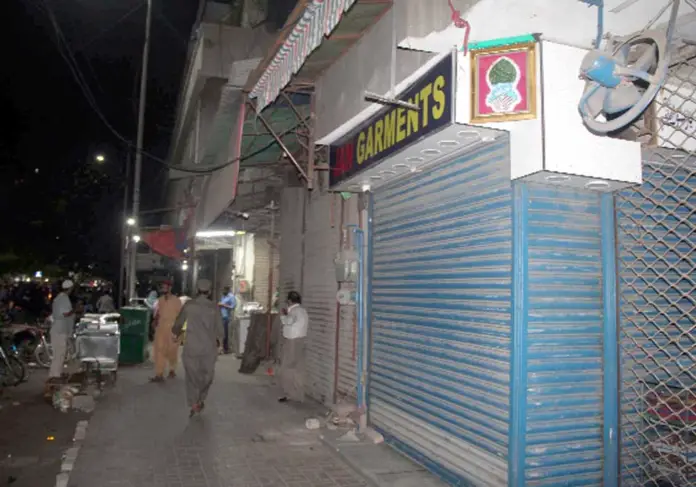The Sindh government on Friday announced it is limiting the operating hours of markets, shopping malls, wedding halls and restaurants, for a month to conserve electricity during the ongoing “energy crisis emergency”.
A notification issued by Home Secretary Dr. Saeed Ahmed Mangnejo stated that all markets, bazaars, shops and shopping malls would have to close by 9 pm. However medical stores, pharmacies, hospitals, petrol pumps, CNG stations, bakeries and milk shops would be exempted from the restriction.
In addition, marriage halls banquets and marriage functions would be required to end by 10:30 pm while hotels, restaurants, coffee shops and cafes would have to shut down by 11 pm.
The order would remain in effect from 5 pm on June 17 (today) to July 16, the notification stated.
It said the measures were required due to prevalent power outages and load shedding so the shortfall between the demand and supply of electricity could be reduced.
It noted that the federal cabinet had decided on June 7 to take effective measures to reduce load shedding by conserving energy and preventing and minimising the impacts of anticipated energy shortfall in the country through a national strategy.
Therefore, the notification said, it was “necessary and expedient to enforce certain restrictions to control increasing shortfall between the energy generation and its utilisation, so that this prevalent emergency of the energy shortfall may be controlled, which otherwise could have long term and multi-sectoral impacts on the lives of the general public of the Sindh province”.
The notification also authorised station house officers (SHOs) to register complaints against people who violated the directives under section 188 (disobedience of order duly promulgated by public servants) of the Pakistan Penal Code.
It said that action against such people could also be taken under section 33 (obstruction) of the National Disaster Management Authority Act 2010 by the district administration.
There have been reports of hours-long loadshedding across the country, leaving the people to suffer in high temperatures.
The incumbent government has blamed its predecessor PTI for the energy shortfall.
Prime Minister Shehbaz Sharif had on June 4 sought an ’emergency plan’ to end loadshedding.
Meanwhile, K-Electric, the provincial capital’s power utility, had announced that it would carry out three hours of loadshedding daily in the city’s so-called exempted, or low-loss, areas.
Consumers living in so-called low-loss areas within KE’s service territory were earlier exempted from loadshedding.
A KE spokesman had said that a new loadshedding regime was planned to provide relief of one to two hours to its high-loss areas where prolonged loadshedding was being undertaken.
He said that the high-loss areas include Surjani Town, Baldia Town, Lyari, New Karachi, Malir, and Qauidabad, among others.
Separately, people from different walks of life came on the roads in Badin, Mirpurkhas, Dadu, Umerkot, Sanghar, Larkana, Sukkur, Shikarpur, Ghotki, Khashore, Jamshoro, Nawabshah, Rajo Khanani, Tando Bago, and other towns of the province on the second day consecutive. They staged demonstrations to vent their anger against the recent petroleum price hike. Irate transporters, businessmen, workers of different political parties, lawyers and members of the civil society protested outside different press clubs. Speaking to the media, the leaders of the protesters alleged that rulers had made the lives of the common people miserable.







